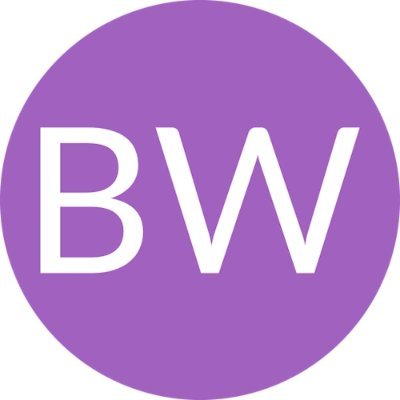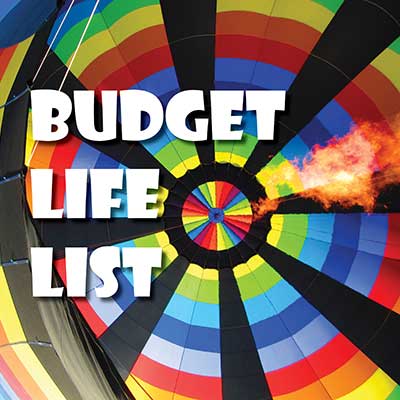Know Your Blogger Series

Check out our Q&A with It’s Not Your 9 to 5 here.
During these weekly features, we are hoping to provide a way for you to interact and learn more about different blogs in the personal finance space.
Below, you can read more about the story behind It’s Not Your 9 to 5, learn about the author, and learn personal finance tips from It’s Not Your 9 to 5 to help you improve your financial situation.
A big thanks for It’s Not Your 9 to 5 for this interview! Now, we will turn it over to the author for this interview.
Tell us about It’s Not Your 9 to 5
What makes you and your blog unique?
What does “being good with your personal finances” mean to you?
What are some habits you practice to keep your personal finances in order?
What are your three articles people should read to get to know you and your message better on your site?
For someone looking to improve their financial situation, what’s your best advice?
Once you get a handle on budgeting and saving, you can start looking for ways to make extra income.
In your opinion, what’s better? Renting a place or buying a house to live?
In your opinion, what’s better? Focusing on increasing your income, or focusing on decreasing your expenses?
Do you have any financial mistakes you’d like to share, and how have you grown from these mistakes to improve your personal finances?
What’s a non-money related interest you have and what do you love about it?
Why do you believe learning about money and caring about personal finance is important?
Second, by understanding personal finance, you can make better decisions on how to use your money to achieve your financial goals.
How You Can Contact It’s Not Your 9 to 5 for More Information
Thank you for reading this interview, and thank you, It’s Not Your 9 to 5, for providing us with some great personal finance tips!
Know Your Blogger Series

Check out our Q&A with Have Your Dollars Make Sense here.
During these weekly features, we are hoping to provide a way for you to interact and learn more about different blogs in the personal finance space.
Below, you can read more about the story behind Have Your Dollars Make Sense, learn about the author, and learn personal finance tips from Have Your Dollars Make Sense to help you improve your financial situation.
A big thanks for Have Your Dollars Make Sense for this interview! Now, we will turn it over to the author for this interview.
Tell us about Have Your Dollars Make Sense
What makes you and your blog unique?
What does “being good with your personal finances” mean to you?
What are some habits you practice to keep your personal finances in order?
What are your three articles people should read to get to know you and your message better on your site?
For someone looking to improve their financial situation, what’s your best advice?
In your opinion, what should you do first? Pay down debt, or invest?
In your opinion, what’s better? Focusing on increasing your income, or focusing on decreasing your expenses?
Do you have any financial mistakes you’d like to share, and how have you grown from these mistakes to improve your personal finances?
If you received a $5,000,000 windfall tomorrow, what would you do with the money?
What’s a non-money related interest you have and what do you love about it?
Why do you believe learning about money and caring about personal finance is important?
How You Can Contact Have Your Dollars Make Sense for More Information
Thank you for reading this interview, and thank you, Have Your Dollars Make Sense, for providing us with some great personal finance tips!
Know Your Blogger Series

Check out our Q&A with Financial Freedom Countdown here.
During these weekly features, we are hoping to provide a way for you to interact and learn more about different blogs in the personal finance space.
Below, you can read more about the story behind Financial Freedom Countdown, learn about the author, and learn personal finance tips from Financial Freedom Countdown to help you improve your financial situation.
A big thanks for Financial Freedom Countdown for this interview! Now, we will turn it over to the author for this interview.
Tell us about Financial Freedom Countdown
What makes you and your blog unique?
- Even if your family knew nothing about money
- Even if you have a late start
- Even if you live in an expensive part of the country
What does “being good with your personal finances” mean to you?
What are some habits you practice to keep your personal finances in order?
What are your three articles’ people should read to get to know you and your message better on your site?
For someone looking to improve their financial situation, what’s your best advice?
In your opinion, what’s better? Renting a place or buying a house to live?
In your opinion, what should you do first? Pay down debt, or invest?
What is your favorite investment class and why?
Do you have any financial mistakes you’d like to share, and how have you grown from these mistakes to improve your personal finances?
What’s a non-money related interest you have and what do you love about it?
How You Can Contact Financial Freedom Countdown for More Information
Thank you for reading this interview, and thank you, Financial Freedom Countdown, for providing us with some great personal finance tips!
Know Your Blogger Series

Check out our Q&A with A Chat with Kat here.
During these weekly features, we are hoping to provide a way for you to interact and learn more about different blogs in the personal finance space.
Below, you can read more about the story behind A Chat with Kat, learn about the author, and learn personal finance tips from A Chat with Kat to help you improve your financial situation.
A big thanks for A Chat with Kat for this interview! Now, we will turn it over to the author for this interview.
Tell us about A Chat with Kat
What makes you and your blog unique?
What does “being good with your personal finances” mean to you?
What are some habits you practice to keep your personal finances in order?
At the end of every month, I hold a personal finance meeting with myself and complete the following tasks:
- Pay my bills: rent, council tax, gas and electricity.
- Send out client invoices.
- Calculate total money earned in the past month.
- Calculate how much tax I need to set aside for the month.
- Calculate how much I can invest and my savings rate.
- Make a record of my donations.
- Check my net worth and log it in the spreadsheet.
What are your three articles people should read to get to know you and your message better on your site?
- My financial journey: The Long Road To Financial Independence: Kat’s Journey
- Helping you to understand your muscles and how to take care of them: The Body Project
- The importance of effective giving: On Signing The Pledge To End World Hunger
For someone looking to improve their financial situation, what’s your best advice?
In the short term: If you are just starting out, you need to spend a few hours figuring out your income and expenses. Add up everything you earn and everything you spend. Which number is bigger? If you already earn more than you spend, congratulations. You’re doing great and can skip to the ‘medium term’ step. If not, this needs to change. Where could you cut expenses so that you have money left over at the end of the month? Some examples might be:
- Big ticket items: could you live in a smaller place or drive a less expensive car?
- Check that your bills are optimised. Can you switch to cheaper providers?
- Food bill: change grocery shops, buy in bulk, find discounted items, eat out less, etc.
- Entertainment: find a free or cheap hobby, sell things you no longer use, reduce the frequency of shopping trips.
What’s an area of your life which has benefited from improving your personal finances? Have there been any areas of your life which have suffered?
What are your favorite personal blogs and bloggers you have been inspired by?
- Mr. Money Mustache is the blog that got me started. I was always good with finances, but his posts gave me a goal to work towards and some practical advice on how to cut expenses further.
- A great UK blog is Monevator. There’s lots of advice on there, and the weekly newsletter is full of interesting articles from various bloggers and news outlets.
- Another favourite is Banker on FIRE. I read his posts every week because they are insightful and entertaining. He writes not just for other high-income professionals, but for everyone who wants to learn to improve their finances.
In your opinion, what’s better? Focusing on increasing your income, or focusing on decreasing your expenses?
What’s a non-money related interest you have and what do you love about it?
Why do you believe learning about money and caring about personal finance is important?
How You Can Contact A Chat with Kat for More Information
Thank you for reading this interview, and thank you, A Chat with Kat, for providing us with some great personal finance tips!
Know Your Blogger Series

Check out our Q&A with FI for the People here.
During these weekly features, we are hoping to provide a way for you to interact and learn more about different blogs in the personal finance space.
Below, you can read more about the story behind FI for the People, learn about the author, and learn personal finance tips from FI for the People to help you improve your financial situation.
A big thanks for FI for the People for this interview! Now, we will turn it over to the author for this interview.
Tell us about FI for the People
What makes you and your blog unique?
- the value and importance of increasing the spread (in the right direction, of course) between earnings and expenses—no matter the amount—to in turn expand the number of options available to you
- the vast benefits of contrarian thinking, and questioning everything
- practicing constant gratitude
- lessons I’ve learned the hard way, as to renting v. buying, simply saving v. actively investing, and paying off lotsa debt, among many other things
- any number of other similarly trashy tabloid-worthy topics.
What does “being good with your personal finances” mean to you?
What are some habits you practice to keep your personal finances in order?
What are your three articles people should read to get to know you and your message better on your site?
- Law School Broke Me – A brief history of how law school wrecked me financially, but also led me to taking invaluable courses at the School of Life
- The Pursuit of Happiness – Thoughts on what sorts of bright, shiny “things” are worth chasing after
- How to Succeed in Business Without Really Trying (Part One) and (Part Two) – OK, I’m cheating here. These are two blog posts, which the math-whizzes amongst you will note, puts me over the “three” in the question. But they’re of a piece, and list several ways to do well in your job without being any sort of superhero or making much effort.
For someone looking to improve their financial situation, what’s your best advice?
What’s an area of your life which has benefited from improving your personal finances? Have there been any areas of your life which have suffered?
What are your favorite personal finance blogs and bloggers you have been inspired by?
In your opinion, what’s better? Renting a place or buying a house to live?
What’s a non-money related interest you have and what do you love about it?
Why do you believe learning about money and caring about personal finance is important?
How You Can Contact FI for the People for More Information
.
Thank you for reading this interview, and thank you, FI for the People, for providing us with some great personal finance tips!
Know Your Blogger Series

During these weekly features, we are hoping to provide a way for you to interact and learn more about different blogs in the personal finance space.
Below, you can read more about the story behind Money Saved is Money Earned, learn about the author, and learn personal finance tips from Money Saved is Money Earned to help you improve your financial situation.
A big thanks for Money Saved is Money Earned for this interview! Now, we will turn it over to the author for this interview.
Tell us about Money Saved is Money Earned
What makes you and your blog unique?
What does “being good with your personal finances” mean to you?
What are some habits you practice to keep your personal finances in order?
- Have a budget and stick with it.
- Understand the difference between your necessities, needs, and wants.
- Beware of miscellaneous expenses, especially the ones that are not in your budget.
- If you make only a dollar, save a penny and give a penny. Build character.
- Do not fall for a sales pitch unless you are in the market for that item. More importantly, understand how they slice the pie.
What are your three articles people should read to get to know you and your message better on your site?
For someone looking to improve their financial situation, what’s your best advice?
In your opinion, what’s better? Focusing on increasing your income, or focusing on decreasing your expenses?
What is your favorite investment class and why?
If you received a $5,000,000 windfall tomorrow, what would you do with the money?
What’s a non-money related interest you have and what do you love about it?
Why do you believe learning about money and caring about personal finance is important?
How You Can Contact Money Saved is Money Earned for More Information
.
Thank you for reading this interview, and thank you, Money Saved is Money Earned, for providing us with some great personal finance tips!
Know Your Blogger Series

Check out our Q&A with Tic Toc Life here.
During these weekly features, we are hoping to provide a way for you to interact and learn more about different blogs in the personal finance space.
Below, you can read more about the story behind Tic Toc Life, learn about the author, and learn personal finance tips from Tic Toc Life to help you improve your financial situation.
A big thanks for Tic Toc Life for this interview! Now, we will turn it over to the author for this interview.
Tell us about Tic Toc Life
What makes you and your blog unique?
What does “being good with your personal finances” mean to you?
- Awareness: understand what money can unlock in life and how you’ve employed it to your advantage
- Planning: create evolving goals that reflect the purpose of your wealth
- Intentionality: spend money to solve a problem, save money for a reason
What are some habits you practice to keep your personal finances in order?
- We focus on value instead of price. This is a privilege of having money: when a particular set of running shoes went on a closeout sale that Chris loves, he purchased 3 sets to use over time.
- Finding healthy, fun, challenging ways to fill your normal day-to-day life when you’ve got more free time (retired early, semi retired, part-time, etc) is important. Sure, we could afford to drive to pickup groceries, but we’d rather take a 10 minute walk, get fresh air, and build up our shoulder muscles on the trek back. If you remove all challenges, chores, and tasks from your life through money—you’re going to have a lot of time to fill on your hands that might lure you into too much sedentary entertainment.
- Whether something (a tool, clothes, stuff) is cheap or expensive has little bearing on how we treat it. We want our things to last, partly out of an attempt to reduce waste, but also because we don’t want to constantly feel the need to upgrade and replace them. It’s a lot of effort and mental weight to research, review, and buy new stuff that we’d rather spend on activities that bring more value to our lives.
What are your three articles people should read to get to know you and your message better on your site?
- How to Become a Millionaire in 10 Years (Debt to $1.2M at 33)
(By both of us)
Our thirteen-year saga from student loan debt, to graduate school, shifting careers, and starting two businesses. At the lowest point, we went from a negative $107K net worth to $1.2M in nine years. This is how we became millionaires and reached financial independence. - 3 Steps to Conquer Your Fears of DIY Mistakes (And More!)
(By Jenni)
After 7 years of holding back, I conquered my fears and finished my DIY project. Start now with my 3 steps to get past your fear of making mistakes! - This Is the Power of FU Money (and How I Was Escorted Out)
(By Chris)
For someone looking to improve their financial situation, what’s your best advice?
What’s an area of your life which has benefited from improving your personal finances? Have there been any areas of your life that have suffered?
In your opinion, what’s better? Focusing on increasing your income, or focusing on decreasing your expenses?
Do you have any financial mistakes you’d like to share, and how have you grown from these mistakes to improve your personal finances?
- I blew half my net worth gambling on the stock market (nowadays we stick to index funds instead of individual stocks)
- When I moved to the big city for a corporate job, I bought the life to go with it—and $52K worth of lifestyle inflation through my apartment choice
- I turned a lifelong hobby into a business that earned $1.3M over a few years—a passionate hobby that turned into a job and sucked the fun out of it
What’s a non-money related interest you have and what do you love about it?
Why do you believe learning about money and caring about personal finance is important?
How You Can Contact Tic Toc Life for More Information
Thank you for reading this interview, and thank you, Tic Toc Life, for providing us with some great personal finance tips!
Know Your Blogger Series

So, Financial Chain Breakers is about overcoming all of that BS, reclaiming our money, and reclaiming our lives.
Check out our Q&A with Financial Chain Breakers here.
During these weekly features, we are hoping to provide a way for you to interact and learn more about different blogs in the personal finance space.
Below, you can read more about the story behind Financial Chain Breakers, learn about the author, and learn personal finance tips from Financial Chain Breakers to help you improve your financial situation.
A big thanks for Financial Chain Breakers for this interview! Now, we will turn it over to the author for this interview.
Tell us about Financial Chain Breakers
What makes you and your blog unique?
What does “being good with your personal finances” mean to you?
What are some habits you practice to keep your personal finances in order?
What are your three articles people should read to get to know you and your message better on your site?
For someone looking to improve their financial situation, what’s your best advice?
What’s an area of your life which has benefited from improving your personal finances? Have there been any areas of your life which have suffered?
What are your favorite personal finance books?
If you received a $5,000,000 windfall tomorrow, what would you do with the money?
What’s a non-money related interest you have and what do you love about it?
Why do you believe learning about money and caring about personal finance is important?
How You Can Contact Financial Chain Breakers for More Information
.
Thank you for reading this interview, and thank you, Financial Chain Breakers, for providing us with some great personal finance tips!
Know Your Blogger Series

My mission is to share the best tips and tricks on personal finance, wellness and how to live a balanced but fulfilling life, one blog post at a time.
Check out our Q&A with Bella Wanana here.
During these weekly features, we are hoping to provide a way for you to interact and learn more about different blogs in the personal finance space.
Below, you can read more about the story behind Bella Wanana, learn about the author, and learn personal finance tips from Bella Wanana to help you improve your financial situation.
A big thanks for Bella Wanana for this interview! Now, we will turn it over to the author for this interview.
Tell us about Bella Wanana
What makes you and your blog unique?
- Quality: I only produce high-quality contents for my readers to enjoy
- Originality: I only produce original contents that add value to my readers’ life. Even if the topics have been covered in other blogs, I make sure to add my personal interpretation and understanding.
- Authenticity: I say what I do and remain true to myself at all times. This value also applies to recommendations. I will only recommend products/services if I genuinely believe they can have a positive impact on your life
- Freshness of content: I update this blog regularly, at least once a week.
What does “being good with your personal finances” mean to you?
What are some habits you practice to keep your personal finances in order?
What are your three articles people should read to get to know you and your message better on your site?
Here are three articles which I think people should read to know more about my blog and message:
For someone looking to improve their financial situation, what’s your best advice?
In your opinion, what’s better? Renting a place or buying a house to live?
What are your favorite personal finance books?
In your opinion, what’s better? Focusing on increasing your income, or focusing on decreasing your expenses?
- It is easier because you have full control over your expenses
- You can see immediate positive effect on your personal finance, which creates momentum
If you received a $5,000,000 windfall tomorrow, what would you do with the money?
- Help my parents pay down their mortgage
- Buy a house
- Share my winnings with some family members who are less well-off
- Devoting more time into blogging now that I have a nice cushion
- Donate to charities that I believe it
What’s a non-money related interest you have and what do you love about it?
How You Can Contact Bella Wanana for More Information
Thank you for reading this interview, and thank you, Bella Wanana, for providing us with some great personal finance tips!
Know Your Blogger Series

My blog is now what my subscribers want to read about, stories that dive into my financial journey and my various life list excursions.
Check out our Q&A with Budget Life List here.
During these weekly features, we are hoping to provide a way for you to interact and learn more about different blogs in the personal finance space.
Below, you can read more about the story behind Budget Life List, learn about the author, and learn personal finance tips from Budget Life List to help you improve your financial situation.
A big thanks for Budget Life List for this interview! Now, we will turn it over to the author for this interview.
Tell us about Budget Life List
What makes you and your blog unique?
What does “being good with your personal finances” mean to you?
What are some habits you practice to keep your personal finances in order?
What are your three articles people should read to get to know you and your message better on your site?
What’s an area of your life which has benefited from improving your personal finances?
Have there been any areas of your life which have suffered?
In your opinion, what should you do first? Pay down debt, or invest?
In your opinion, what’s better? Focusing on increasing your income, or focusing on decreasing your expenses?
Do you have any financial mistakes you’d like to share, and how have you grown from these mistakes to improve your personal finances?
Why do you believe learning about money and caring about personal finance is important?
How You Can Contact Budget Life List for More Information
Thank you for reading this interview, and thank you, Budget Life List, for providing us with some great personal finance tips!
